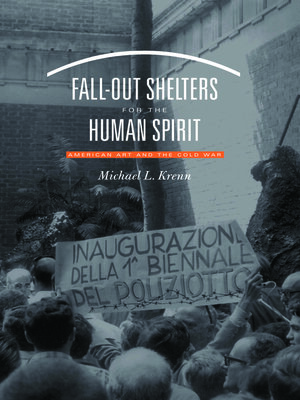
Sign up to save your library
With an OverDrive account, you can save your favorite libraries for at-a-glance information about availability. Find out more about OverDrive accounts.
Find this title in Libby, the library reading app by OverDrive.



Search for a digital library with this title
Title found at these libraries:
| Library Name | Distance |
|---|---|
| Loading... |
During the Cold War, culture became another weapon in America’s battle against communism. Part of that effort in cultural diplomacy included a program to arrange the exhibition of hundreds of American paintings overseas. Michael L. Krenn studies the successes, failures, contradictions, and controversies that arose when the U.S. government and the American art world sought to work together to make an international art program a reality between the 1940s and the 1970s.
The Department of State, then the United States Information Agency, and eventually the Smithsonian Institution directed this effort, relying heavily on the assistance of major American art organizations, museums, curators, and artists. What the government hoped to accomplish and what the art community had in mind, however, were often at odds. Intense domestic controversies resulted, particularly when the effort involved modern or abstract expressionist art. Ultimately, the exhibition of American art overseas was one of the most controversial Cold War initiatives undertaken by the United States. Krenn’s investigation deepens our understanding of the cultural dimensions of America’s postwar diplomacy and explores how unexpected elements of the Cold War led to a redefinition of what is, and is not, “American.”
The Department of State, then the United States Information Agency, and eventually the Smithsonian Institution directed this effort, relying heavily on the assistance of major American art organizations, museums, curators, and artists. What the government hoped to accomplish and what the art community had in mind, however, were often at odds. Intense domestic controversies resulted, particularly when the effort involved modern or abstract expressionist art. Ultimately, the exhibition of American art overseas was one of the most controversial Cold War initiatives undertaken by the United States. Krenn’s investigation deepens our understanding of the cultural dimensions of America’s postwar diplomacy and explores how unexpected elements of the Cold War led to a redefinition of what is, and is not, “American.”







